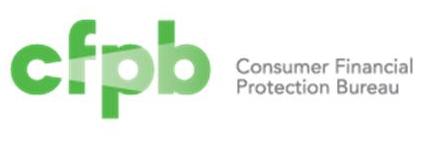
The rule focuses on debt collection communications and gives consumers more control over how often and through what means debt collectors can communicate with them regarding their debts
Washington DC – 30 October 2020 – The Consumer Financial Protection Bureau (Bureau) today issued a final rule to restate and clarify prohibitions on harassment and abuse, false or misleading representations, and unfair practices by debt collectors when collecting consumer debt. The rule focuses on debt collection communications and gives consumers more control over how often and through what means debt collectors can communicate with them regarding their debts. The rule also clarifies how the protections of the Fair Debt Collection Practices Act (FDCPA), which was passed in 1977, apply to newer communication technologies, such as email and text messages.
The rule is the result of a deliberative, thoughtful process spanning more than seven years and reflects engagement with consumer advocates, debt collectors, and other stakeholders. Further, in developing the final rule, the Bureau considered the more than 14,000 comments received during the public comment and rulemaking process. As a result of this feedback, for example, the rule establishes a presumption on the number of calls debt collectors may place to reach consumers on a weekly basis. A debt collector is presumed to violate federal law if the debt collector places telephone calls to a particular person in connection with the collection of a particular debt more than seven times within seven consecutive days or within seven consecutive days of having had a telephone conversation about the debt.
The rule also clarifies how consumers may set limits on debt collection communications to reflect their preferences and the limits on communicating with third parties about a consumer’s debt. The rule requires debt collectors who communicate electronically to offer the consumer a reasonable and simple method to opt out of such communications at a specific email address or telephone number. The rule also provides that consumers may, if the debt collector communicates through a medium of electronic communications, use that medium of electronic communications to place a cease communication request or notify the debt collector that they refuse to pay the debt.
The rule further clarifies that the FDCPA’s general prohibition on harassing, oppressive, or abusive conduct applies to telephone calls as well as other communication media, such as email and text messages, and provides examples demonstrating how the prohibition restricts emails and text messages. It also generally restates the FDCPA’s prohibitions regarding false, deceptive, or misleading representations or means and unfair or unconscionable means.
Finally, to address one of the topics on which the Bureau received a great deal of feedback, the Bureau is not finalizing the proposed safe harbor for debt collectors against claims that an attorney falsely represented the attorney’s involvement in the preparation of a litigation submission. That provision was proposed to bring greater clarity to this issue but, after receiving questions and comments from many stakeholders concerning the proposal, the Bureau has decided not to finalize that provision.
“With the vast changes in communications since the FDCPA was passed more than four decades ago, it is important to provide clear rules of the road,” said Consumer Financial Protection Bureau Director Kathleen L. Kraninger. “Our debt collection rulemaking provides limits on debt collectors and provides clear rights for consumers. With this modernized debt collection rule, consumers will have greater control when communicating with debt collectors.”
The final rule also contains provisions on disputes, and record retention, among other topics. The Bureau intends to issue a second debt collection final rule focused on consumer disclosures in December 2020.
The final rule can be found here: https://files.consumerfinance.gov/f/documents/cfpb_debt-collection_final-rule_2020-10.pdf .
To read Director Kraninger’s blog on the final rule click here: CFPB’s clear rules of the road for debt collector communications lead to stronger consumer rights
###
The Consumer Financial Protection Bureau is a 21st century agency that helps consumer finance markets work by regularly identifying and addressing outdated, unnecessary, or unduly burdensome regulations, by making rules more effective, by consistently enforcing federal consumer financial law, and by empowering consumers to take more control over their economic lives. For more information, visit consumerfinance.gov.










